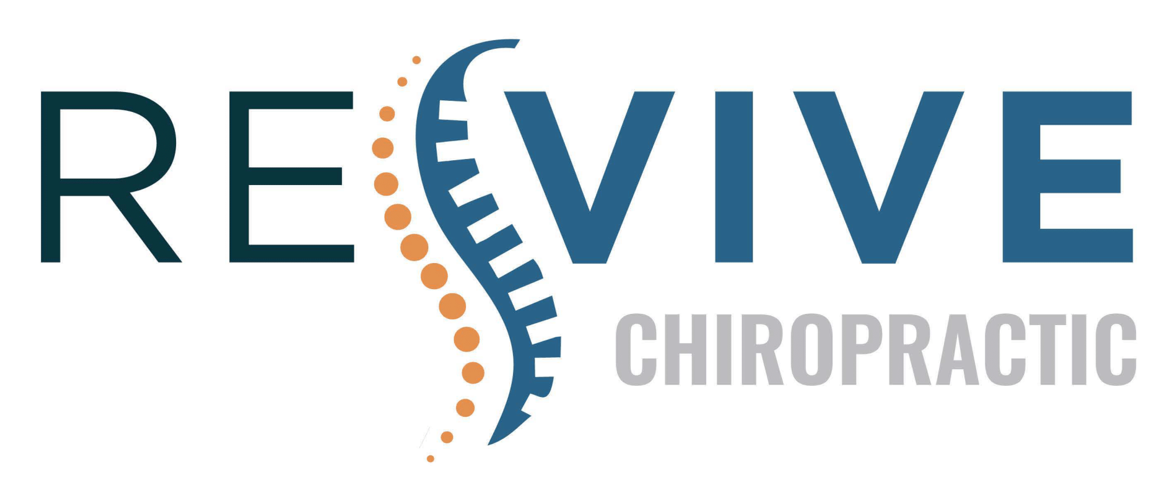If you're one of the millions who suffer from migraines, you know how debilitating they can be. You might find yourself constantly searching for effective relief, yet feeling overwhelmed by the options. By identifying your specific triggers and exploring various treatment methods, you can start to regain control. But what about the lifestyle changes that could make a significant difference? Understanding these aspects might just be the key to opening up better management of your migraines, and there are several strategies you may not have considered yet.
Understanding Migraines
Migraines are more than just bad headaches; they're complex neurological events that can disrupt your entire day. When you experience a migraine, it's not just about the pain; you're often dealing with a range of symptoms that can include nausea, sensitivity to light and sound, and even visual disturbances. Understanding how migraines work is essential for managing them effectively.
At their core, migraines involve changes in brain activity, affecting nerve signals, chemicals, and blood vessels. These changes can lead to the throbbing pain you feel, typically on one side of your head.
You may not realize it, but your body undergoes a series of reactions during a migraine attack, starting with a prodrome phase, which may occur hours or even days before the headache itself. You might notice mood changes, food cravings, or fatigue during this stage.
As the migraine progresses, you may reach the aura phase, where visual disturbances like flashing lights or blind spots can occur. This is often followed by the headache phase, which can last from a few hours to several days.
Finally, the postdrome phase can leave you feeling exhausted and drained. Recognizing these phases not only helps you understand what your body is going through but also empowers you to take proactive steps in managing your migraines.
Whether it's tracking your symptoms, consulting a healthcare professional, or exploring treatment options, knowledge is your best ally in the battle against migraines.
Common Triggers to Avoid
To effectively manage your migraines, it's essential to identify and avoid common triggers.
Stress can be a significant factor, so incorporating stress management techniques into your routine can make a difference.
Additionally, paying attention to your diet and avoiding certain foods can help you reduce the frequency of your migraines.
#
Stress Management Techniques
Understanding your body's responses to stress can be essential for managing migraine triggers effectively. Stress is a well-known precursor to migraines, and learning how to manage it can make a significant difference in your quality of life.
Start by identifying your stressors—whether they're work-related, personal, or environmental. Once you know what triggers your stress, you can take proactive steps to minimize their impact.
Incorporating relaxation techniques into your routine can be beneficial. Consider practicing mindfulness meditation or deep-breathing exercises for a few minutes each day. These methods help calm your mind and reduce tension.
Regular physical activity, like walking or yoga, also releases endorphins, which can improve your mood and lower stress levels.
Additionally, maintaining a consistent sleep schedule can help stabilize your emotional responses to stress. Aim for 7-9 hours of quality sleep each night.
Finally, don't hesitate to seek support—talking to friends, family, or a therapist can provide a valuable outlet for your feelings.
Dietary Caution Required
Many people don't realize how much their diet can influence migraine occurrences. What you eat can either trigger a migraine or help you avoid one. Being mindful of your dietary choices is essential for managing your symptoms effectively.
Here are some common triggers to watch out for:
- Aged cheeses: These can contain tyramine, which may provoke migraines in sensitive individuals.
- Processed meats: Nitrates and other preservatives in these foods can lead to headaches.
- Caffeinated beverages: While caffeine can sometimes relieve headaches, too much can result in withdrawal headaches.
Identifying and eliminating these triggers from your diet can be a game changer. Keep a food diary to track what you eat and how it affects your migraines. This way, you can pinpoint specific foods that might be causing your discomfort.
Don't forget to stay hydrated, as dehydration is another common migraine trigger. By making informed dietary choices, you can greatly reduce the frequency and intensity of your migraines, allowing you to enjoy life more fully.
Lifestyle Changes for Relief
Making certain lifestyle changes can greatly ease migraine symptoms and improve your quality of life. One of the most effective steps you can take is to establish a consistent sleep schedule. Aim for seven to eight hours of quality sleep each night, and try to go to bed and wake up at the same time every day. This regularity can help prevent sleep-related triggers.
In addition to sleep, managing stress is essential. High stress levels can lead to migraines, so consider incorporating relaxation techniques such as yoga, meditation, or deep breathing exercises into your daily routine. Even short breaks during your day can help clear your mind and reduce tension.
Regular physical activity is another important component. Engage in moderate exercise like walking, swimming, or cycling for at least 30 minutes most days of the week. Exercise releases endorphins, which can alleviate pain and improve overall mood. Just be sure to avoid intense workouts that could trigger a migraine.
Staying hydrated is crucial too. Dehydration can contribute to headaches, so make it a point to drink plenty of water throughout the day. Carry a reusable water bottle to remind yourself to sip consistently.
Finally, consider keeping a migraine diary. Tracking your episodes, including potential triggers and symptoms, can help you identify patterns and make informed choices about your lifestyle.
Dietary Adjustments to Consider
Adjusting your diet can considerably impact migraine management. Many migraine sufferers find that certain foods can trigger their headaches, while others can help alleviate symptoms. By being mindful of what you eat, you can reduce the frequency and severity of your migraines.
Here are some dietary adjustments to contemplate:
- Stay Hydrated: Dehydration is a common migraine trigger. Make sure you're drinking enough water throughout the day. Aim for at least eight 8-ounce glasses and contemplate increasing your intake during hot weather or when you're active.
- Limit Processed Foods: Many processed foods contain additives and preservatives that can prompt migraines. Try to focus on whole, unprocessed foods. This means adding more fruits, vegetables, lean proteins, and whole grains to your meals.
- Keep a Food Diary: Keeping track of what you eat and when migraines occur can help identify your personal triggers. Note the foods you consume and any headaches that follow. Over time, you'll spot patterns that can guide your dietary choices.
Over-the-Counter Medications
Over-the-counter (OTC) medications can be an essential tool in managing migraine pain effectively. When you're hit with a migraine, quick relief is often a priority, and these medications can help you regain control. Common OTC options include nonsteroidal anti-inflammatory drugs (NSAIDs) like ibuprofen and naproxen, which can reduce inflammation and alleviate pain. Acetaminophen is another popular choice; it's generally milder on the stomach and can be effective for less intense migraines.
When you feel a migraine coming on, taking these medications at the first sign of symptoms can make a significant difference. It's important to follow the recommended dosages to avoid potential side effects. If you're unsure about which OTC medication to choose, consult with your pharmacist or healthcare provider; they can guide you based on your specific symptoms and health history.
Some migraine sufferers find combination products, which contain a mix of ingredients like caffeine along with pain relievers, to be particularly effective. Caffeine can enhance the effectiveness of pain relievers, but be cautious—too much caffeine can trigger headaches in some individuals.
Keep in mind that while OTC medications can be helpful, they're not a one-size-fits-all solution. If you find yourself relying on these drugs frequently, it may be time to re-evaluate your treatment plan with a healthcare professional.
Prescription Treatment Options
When migraines become frequent and debilitating, prescription treatment options may provide the relief you need. These medications are often more potent than over-the-counter options and can target the underlying mechanisms of your migraines.
It's crucial to consult a healthcare professional to find the right prescription that's tailored to your specific needs.
Prescription treatments typically fall into two categories: acute treatments that relieve symptoms during a migraine attack, and preventive treatments that aim to reduce the frequency and severity of attacks.
Here's what you should consider:
- Triptans: These are often the first line of defense for acute migraine relief. They work by constricting blood vessels and blocking pain pathways in the brain.
- Ergots: Another option for acute treatment, ergots can be effective but are less commonly used due to potential side effects.
- Preventive medications: These include beta-blockers, anticonvulsants, and certain antidepressants. They're taken daily to help prevent the onset of migraines.
Alternative Therapies to Explore
If you're looking for relief from migraines beyond prescription medications, alternative therapies might be worth considering.
Techniques like acupuncture, herbal remedies, and mindfulness can offer new avenues for managing your pain.
Exploring these options could lead you to a more holistic approach to your migraine relief.
Acupuncture for Migraine Relief
Acupuncture has gained popularity as a promising alternative therapy for migraine relief, offering an approach that combines traditional techniques with modern understanding of pain management. This ancient practice involves inserting thin needles into specific points on your body, aiming to restore balance and alleviate pain.
Many migraine sufferers report significant improvements after just a few sessions, making it a valuable addition to your relief strategies.
Here are some key benefits you might experience with acupuncture:
- Reduced Frequency: Regular treatments can decrease the number of migraines you experience.
- Pain Reduction: Acupuncture may help diminish the intensity of your migraine pain when it occurs.
- Overall Well-Being: Many patients notice improved relaxation and reduced stress, which can further help in managing migraines.
If you're considering acupuncture, it's crucial to consult with a qualified practitioner who specializes in treating migraines. They can tailor the treatment to your specific needs and guarantee the best possible outcomes.
While it may not work for everyone, many find it a holistic complement to other migraine relief methods, enhancing your quality of life.
Herbal Remedies Benefits
Exploring herbal remedies can reveal a world of natural options for managing migraines. Many people find relief through various plants and herbs, which may help reduce the frequency and intensity of your headaches.
For instance, feverfew has been used for centuries to prevent migraines. Studies suggest that regular consumption could lessen the severity and duration of attacks.
Another effective option is butterbur, which research indicates may be as effective as some prescription medications for preventing migraines. Just be certain to choose a standardized extract that's free of harmful compounds.
Additionally, ginger can help alleviate nausea often associated with migraines, making it a great companion remedy.
You might also consider peppermint oil, which can be applied topically to your temples for a cooling sensation that soothes tension headaches.
Chamomile tea is another calming choice, known for its anti-inflammatory properties that may help ease your symptoms.
While herbal remedies can be beneficial, it's crucial to consult with a healthcare professional before starting any new treatment. They can help guarantee your safety and effectiveness, guiding you toward the best natural options for your unique situation.
Mindfulness and Meditation Techniques
Alongside herbal remedies, mindfulness and meditation techniques offer powerful tools for managing migraines. By practicing these techniques, you can reduce stress and enhance your overall well-being, which may lead to fewer migraine episodes.
Mindfulness encourages you to stay present, while meditation helps calm your mind. Here are some effective strategies to try:
- Deep Breathing: Focus on your breath. Inhale slowly through your nose, hold for a moment, and exhale through your mouth. This simple practice can help alleviate tension and promote relaxation.
- Body Scan Meditation: Lie down comfortably and mentally scan your body from head to toe. Acknowledge any tension or discomfort, and consciously relax those areas. This technique helps you connect with your body and release stress.
- Guided Imagery: Visualize a peaceful scene, such as a beach or forest. Engage all your senses to create a vivid mental image. This immersive experience can distract you from pain and promote a sense of calm.
Incorporating these mindfulness and meditation techniques into your routine can empower you to manage migraines more effectively and improve your quality of life.
## Stress Management Techniques
Managing stress is essential for anyone dealing with migraines, as tension can often trigger painful episodes. Implementing effective stress management techniques can greatly reduce the frequency and severity of your migraines.
Start by identifying your stressors. Keeping a journal can help you pinpoint what triggers your stress and how you respond to it.
Next, incorporate regular physical activity into your routine. Exercise releases endorphins, which can enhance your mood and alleviate stress. Aim for at least 30 minutes of moderate exercise most days. Activities like walking, swimming, or yoga can be particularly beneficial for both your body and mind.
Mindfulness is another powerful tool. Practicing mindfulness techniques, such as deep breathing or progressive muscle relaxation, can help ground you in the present moment and diminish feelings of anxiety.
Try setting aside a few minutes each day for these practices, focusing on your breath and letting go of distractions.
Don't forget the importance of social support. Talking to friends or family about your stress can provide relief and even offer new perspectives on your challenges.
Joining a support group for migraine sufferers can also create a sense of community and understanding.
Finally, consider setting boundaries to protect your time and energy. Learn to say no to commitments that may overwhelm you.
Importance of Sleep Hygiene
Prioritizing sleep hygiene is essential for migraine sufferers, as inadequate rest can greatly trigger or exacerbate migraine attacks.
When you don't get enough quality sleep, it can lead to increased stress, hormonal imbalances, and heightened sensitivity to pain—all factors that can intensify your migraines.
Establishing a consistent sleep routine can considerably improve your overall well-being and help manage migraine occurrences.
Here are three key practices to enhance your sleep hygiene:
- Stick to a Schedule: Go to bed and wake up at the same time every day, even on weekends. This consistency helps regulate your body's internal clock and improves sleep quality.
- Create a Relaxing Environment: Make your bedroom a sanctuary for sleep. Keep it cool, dark, and quiet. Consider blackout curtains or white noise machines to help minimize disturbances.
- Limit Screen Time Before Bed: The blue light emitted by phones, tablets, and computers can interfere with your melatonin production. Try to avoid screens at least an hour before bedtime to promote better sleep.
When to Seek Professional Help
Recognizing when to seek professional help is essential for effectively managing migraines. If your headaches are frequent, severe, or disrupt your daily life, it's time to consult a healthcare provider. You shouldn't ignore symptoms that escalate or change in pattern, as they could signal an underlying condition requiring attention.
Additionally, if over-the-counter medications aren't providing relief or if you find yourself relying on them more often, a professional can help you explore other treatment options. It's important to communicate your symptoms clearly, including the frequency, duration, and intensity of your migraines, as well as any accompanying symptoms like nausea or sensitivity to light.
You should also seek help if you experience a sudden headache that's different from your usual migraines, especially if it's accompanied by neurological symptoms such as vision changes, weakness, or confusion. These could indicate a more serious issue, like a stroke or aneurysm.
Finally, if migraines are affecting your emotional well-being, leading to anxiety or depression, a healthcare provider can offer support and treatment to help you cope.
Conclusion
In managing your migraines, remember that a combination of strategies often works best. By identifying triggers, making lifestyle changes, and considering dietary adjustments, you can take significant steps toward relief. Don't hesitate to explore over-the-counter medications and alternative therapies, and prioritize stress management techniques. Ensuring good sleep hygiene is vital too. If your migraines persist or worsen, seeking professional help is essential. You deserve to find a solution that allows you to live your life fully.



